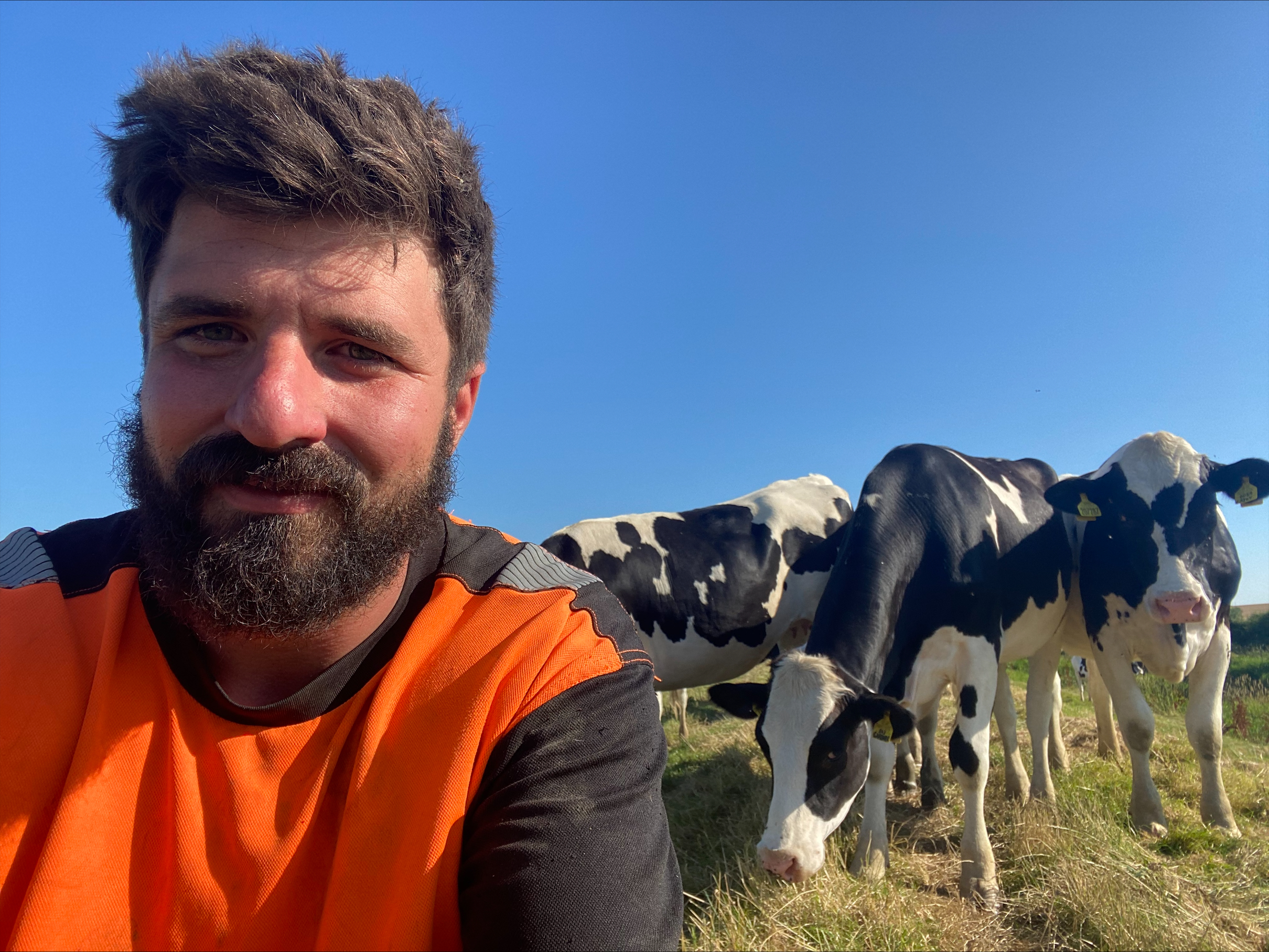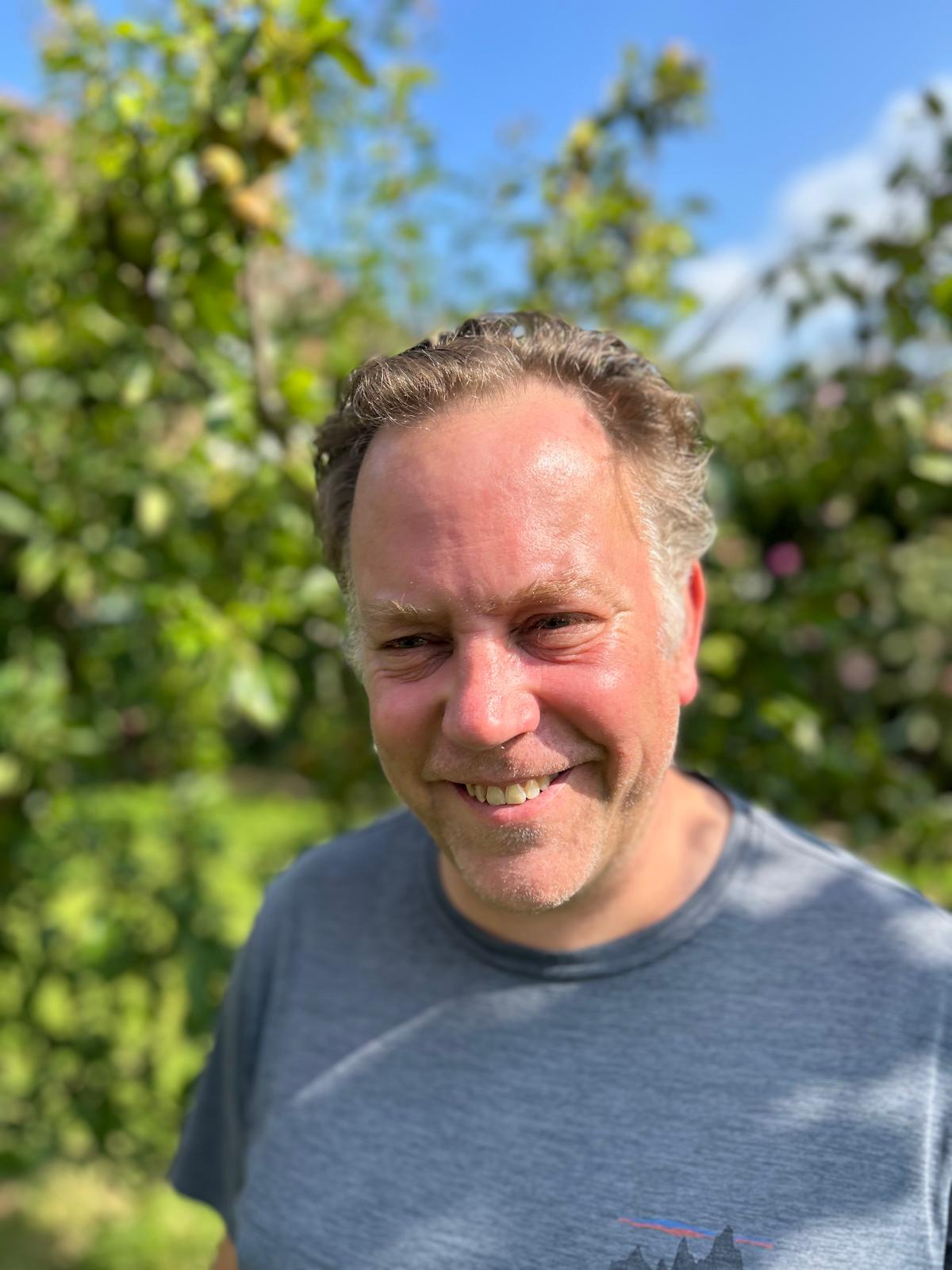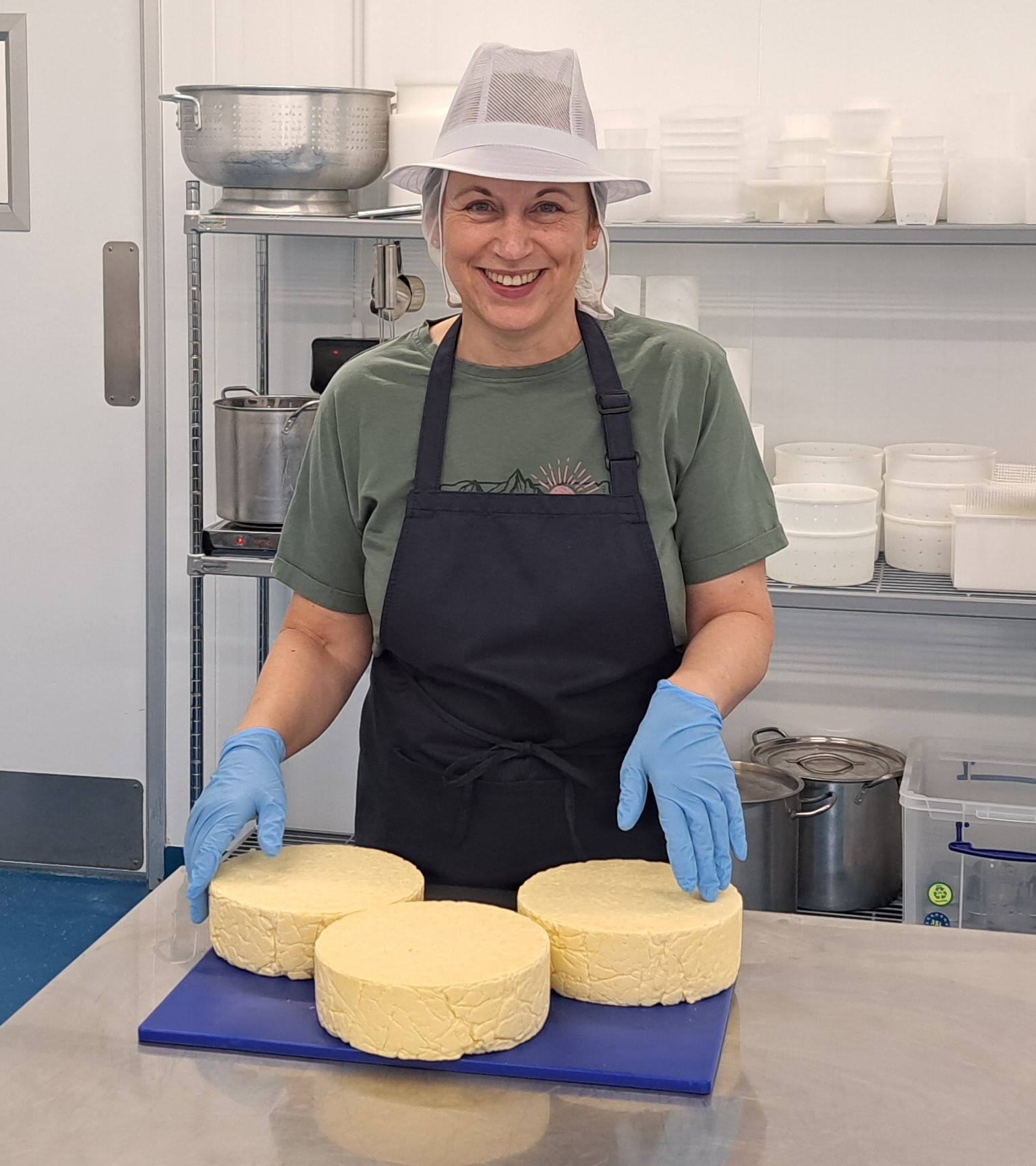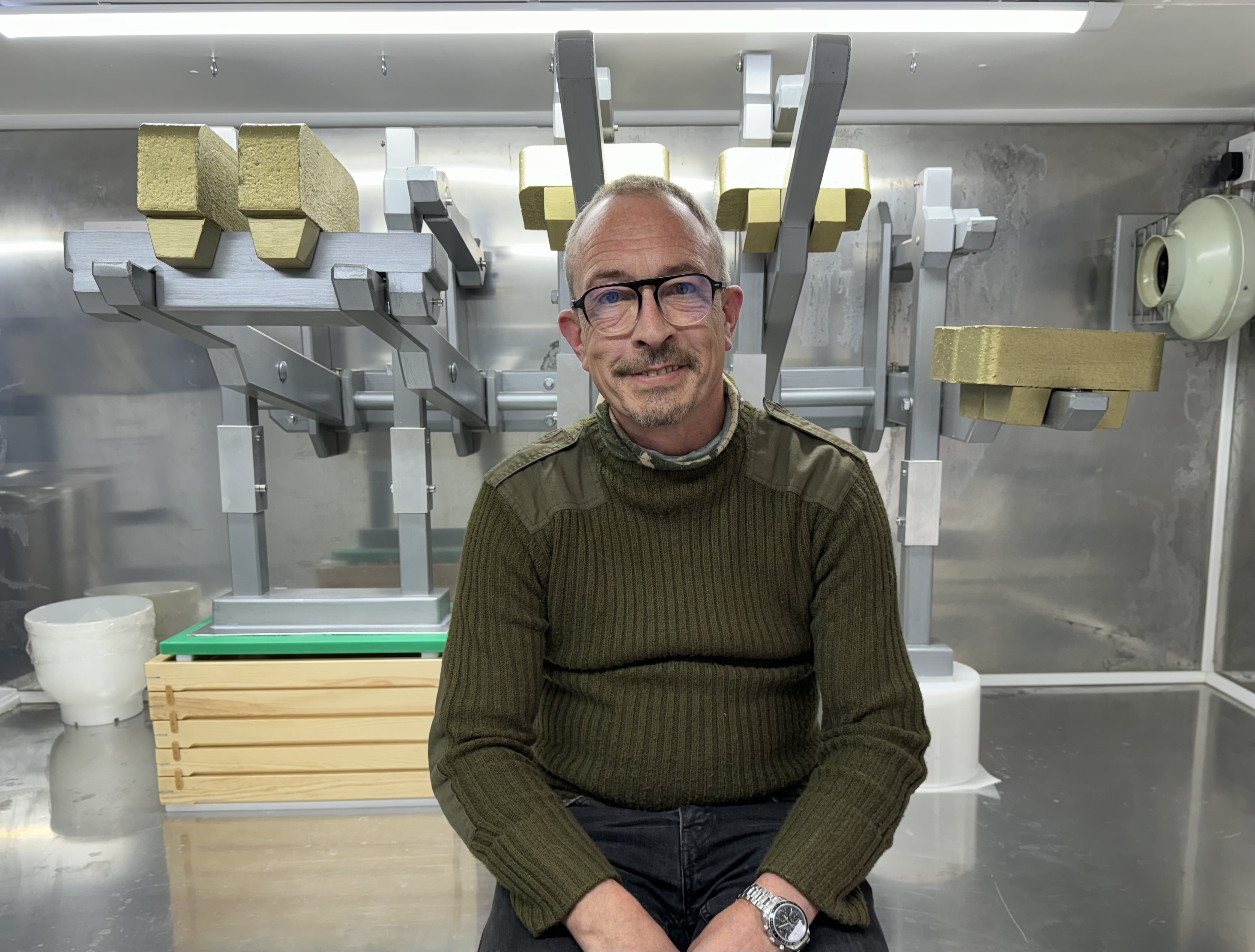Free digital copy
Get Speciality Food magazine delivered to your inbox FREE
Get your free copy
Britain’s artisan cheese landscape is ever blossoming. It’s a marvellously diverse, delicious industry, championed and cultivated by a merry band of makers who often consider themselves ‘custodians’ of their recipes, and of the nation’s cheesemaking culture.
Around 800 (though some would put this figure closer to 1,000) varieties of cheese are made in the UK today, with a good number amongst these having delved into the curd collective in the last 20 to 30 years, rallying against the wholesale industrialisation of the sector.
They’re doing great stuff. Their cheeses taking international awards, being compared to continental varieties with generations of heritage behind them, and attracting the attention of other makers across the world.
But what comes next? Perhaps the most significant downside of having a patchwork of enthusiastic independent cheesemakers strewn across Britain is the question of who’ll carry on their legacies. Who will pick up the mantle of ‘this’ or ‘that’ cheese? What are their succession plans? As a number of artisan cheeses are passion projects and labours of love, there’s a fear that, unless recipes are sold, or businesses are passed down within families, some of our most cherished varieties could vanish in the future.
We shouldn’t worry too much, says Lucy Cufflin, one of the founders of Chiswick Cheese Market, as the fascination around producing cheese, and wanting to be a part of the artisan scene, has led to a number of new ‘cheesethusiasts’ popping up.
The market, alongside the Academy of Cheese, is helping to foster fledging cheesemakers through a supportive grant scheme. It’s one of the things Lucy loves best about the market. “We have a great passion for fantastic cheeses, and to be part of the journey, moving a cheesemaker from kitchen to dairy, from homespun to professionally made artisan cheeses for sale, is such a privilege,” she says. “We count ourselves very fortunate to be able to be part of the ride – after all, ‘blessed are the cheesemakers’.”
Speciality Food spoke to the most recent grant recipients (some of the UK’s newest, up-and-coming producers) to find out more about their makes.
Emily Tydeman, Broughton Hall Dairy
Emily’s leap into cheesemaking was quite a dramatic one. Having dabbled in the kitchen after being furloughed from her job with the National Trust during the pandemic, husband Sam told her she was pretty good at it, and should make it her full time gig.
She took on work experience at Suffolk Farmhouse Cheeses nearby, and when a colleague went on maternity leave, “I chucked in my career of 20 years and went to make cheese for 18 months!”
Keen to branch out on her own, however, in 2024 Emily made the leap to found Broughton Hall Dairy, based at Sam’s family’s regenerative farm (where they live), sourcing ewe’s milk from a fellow farmer just 10 miles down the road.
“I wanted to use milk from sheep where they keep the lambs at foot until they’ve weaned naturally,” says Emily. “And where they are outdoors all-year-round. These ones graze on herbal pastures and cover crops, and completely fitted in with what we were looking for.”
Pyghtle is tangy, becoming fudgy, dense and crumbly with age, transforming from milky sweetness, to deep, meaty notes Emily compares to roast lamb.
Just a short while after its release, Pyghtle was selected as Best New Cheese at the Artisan Cheese Awards, while the dairy was named Best Small Producer.
Emily and Sam hope to match its success with Nettus, produced in a similar way to Pyghtle, but with a washed rind finish.
The Chiswick Cheese Market grant is being used, Emily says, to further fund her cheese knowledge, enabling her to study at Academy of Cheese Level Two. She also attended a hands-on course in the autumn to pick up tips and techniques, and learn from others in the business.
“This is the massive privilege of being given the grant,” she adds. “The ability to become connected to new people in the industry and benefit from their knowledge and experience. It’s a massive deal for me, particularly the promise of mentor support, which will benefit me long term.”
She continues, “Seeing me as part of the ‘new wave’ of British cheesemakers makes me feel rather flushed with excitement. To think that I am now part of this industry which has been so welcoming and encouraging, and so inspiring. It’s just awesome.”

Matt Gue, Adur Valley Creamery at Huddlestone Farm
Matt is a third generation farmer in Sussex. Having initially trained as a vet in Bristol, working in practice for five years, he returned to the family farm with a view to look at ways it could deliver local products to consumers. “And cheese was an obvious one for us!”
He set off to meet Jonny Crickmore at Fen Farm Dairy (producer of Baron Bigod) which further ignited his desire to bring cheese home. “That was over two years ago now, and we’re just starting our cheesemaking journey. We’ve been building our cheese rooms and maturing rooms at the farm, and the grant we received is being used for technical training to make sure my skills are there from the start. It’s great to be getting advice from everyone on the cheese market!”
The farm is home to pedigree Holsteins, and Matt’s vision is to produce lactic, set, bloomy rinded cheeses, similar to Chaource. “And we’re still toying with the idea of doing a triple cream. We did a lot of market research and there’s not many British lactic set cheeses and only two or three triple creams made in the UK. I don’t want to start producing something that’s already being done on a large scale already. We’ve got lots of territorials and Cheddars and Alpine styles here. Also, we want to make quick maturing cheeses.”
So far, everyone in the industry has been “very supportive, and the feeling generally seems to be the more cheeses there are, the better”.
“It’s great that we’re moving away from the classic British ideology that all we have is Cheddar and Stilton. It’s nice to see farmstead cheeses and artisan producers doing so well, and it’s a friendly community to be part of.”

Finn Dunlop
This new cheesemaker is no stranger to the fine food world, having worked at Macknade food hall for more than a decade as part of the senior leadership team. “I’ve always had a real love of good food,” Finn smiles.
“One day I found myself on the deli counter and I thought that what appeals to me about food is that I love learning about it. More than anything it’s the story and people behind it, and that’s so prevalent in the cheese industry. Those kinds of products have fascinating stories to tell,and I loved that!”
Finn gravitated towards the Academy of Cheese and its courses, with a view to levelling up the knowledge he could take on to the wider team. “And from there I started reaching out to local farmers and producers I already knew. A local dairy farmer was retiring and I was intrigued, thinking about what he’d do with his kit and equipment. I got in touch and thought there could be something interesting in it!”
His vision was to, “Make Alpine styles, cooked pasta-filata styles like Oaxaca, and to experiment with goats’ cheeses and lactic cheeses.”
Production got underway, but Finn’s efforts came to a standstill when rising water tables in the area halted milk production. He hopes to return to using the herd in future, but isn’t wasting any time, having taken on a dedicated cheese production unit close to his home in Canterbury.
Finn was delighted to be a grant recipient, which has helped him work though the Academy of Cheese courses, and he’s ecstatic to be joining the hallowed world of British cheesemakers. “The community is remarkable,” he continues. “I’ve been made to feel incredibly welcome and supported by makers in Kent since I started talking to them. They’ve been so accommodating, and open to sharing their knowledge and their stories.
“I think artisan British cheese is similar to the British wine industry, in that it’s a hard one to be successful in, so anyone who’s doing it is doing it incredibly well not only because they’re so passionate, but because there’s so much against them, so many hurdles and barriers to overcome to make a go of it. You’ve really got to be on top of it,” Finn adds. “I love seeing everyone doing so brilliantly here and I can’t wait to properly be a part of it.”

Jo Shelton, Norfolk & Better
It was a happy accident, nearly two years ago, that led Jo down the cheesemaking path. “I was a manager at Norfolk County Council and I wasn’t enjoying the job,” she tells Speciality Food. “I was looking for something else, not really knowing what I wanted to do, and a friend told me a farmer nearby was looking for someone to make cheese.
“A couple of days later Ian, the farm manager, rang me and said, ‘I hear you might be interested in making cheese?’ I told him I’d never done it before, but he said it was OK, I could give it a go!”
Jo departed to Manor Farm (home of Norfolk & Better), finding herself in the completely alien environment that was the dedicated cheesemaking room. And the rest is history. “I can’t believe how time flies,” she laughs.
“We’re a very unusual set up in that the farm is owned by a businessman who doesn’t have contact with it. He comes in once every so often, and its looked after by a farm manager and small team that work here. The owner, Peter, is a real foodie. He loves his food, and he always said he wanted to have his own cheese, so in 2022 he set up Norfolk & Better to add value to the farm. He’s got cows here (the trademarked Jagyu – Jersey and Wagyu hybrid), and we get in milk from a local farm that has Jersey and Guernsey cows for cheese.
Jo was delighted to receive the Chiswick Cheese Market grant to enhance her skills and training, saying it’s opened up so many opportunities and connections for her.
“I had no idea there was such a network of people. Everyone’s been so supportive and the Academy of Cheese have been fantastic. I feel quite privileged really.”
Jo thinks there are “some amazing cheeses in the industry at the moment” and adds she feels a buzz when she sees how well her peers are doing. “Especially when you think back to years ago when you’d only have fairly average Cheddar and things at the supermarket.”
She makes four cheeses at Manor Farm. “One is called Fen Fosey. It’s like a Tomme, French style, rustic, semi-hard cheese with herby undertones. It’s quite blue in taste, although it’s not a blue cheese, and obviously it’s creamy because it’s Channel Island milk.” Fen Fosey is wrapped in lard-soaked muslin, pressed, and left to age for four to six weeks. It’s at its best around six to 10 weeks. Our other semi-hard cheese is Jiffler. That, again, is pressed. It’s a very creamy and fresh style, and it’s brined a bit like Caerphilly. Then we have Breckland Brie, which has a lovely mushroomy taste to it, and a nice white coat. And we also have Norbert. Peter decided on the name for that one. It’s our Norfolk take on a Camembert-style soft cheese. That’s lovely baked.”

Mat Lloyd, The Rennet Works
“I’m very grateful to Chiswick Cheese Market for embracing what I’m doing and supporting me through my journey,” says Mat.
The cheesemaker started out just over five years ago as a hobbyist, saying he “got addicted to making cheese”.
This interest was cemented by a surprise (to him) win at the 2023 International Cheese & Dairy Awards, with his first cheese, Templar (based on a German beer hall style variety) taking home a Gold. “I also won Gold for International Novice of the Year. That made me think even more seriously about what I’m doing.”
Mat spent seven months converting an outbuilding into a fully functioning cheesemaking room, signed off by EHO, and ready to roll, along the way picking up further awards, including for his Hallouminati, halloumi-style cheese. “It’s got a blend of types of mint, which is not so traditional,” he explains. “There’s more of a spearminty, clean taste to it. It’s a very fresh flavoured cheese.”
What Mat adores about being a start-up is the flexibility and creativity he can have. A lot of experimentation goes on behind the scenes with the Holstein Friesian/Jersey milk he sources from a dairy half a mile away. “At the moment it makes sense for me to do short duration maturations. And I’m finding it’s kind of ‘open season’ for people like me, who are non-traditional, doing something different.
“I think it’s super exciting to be doing this and it’s a whole world of helpful, friendly people that have been so easy to talk to. I’ve made lots of new friendships.”